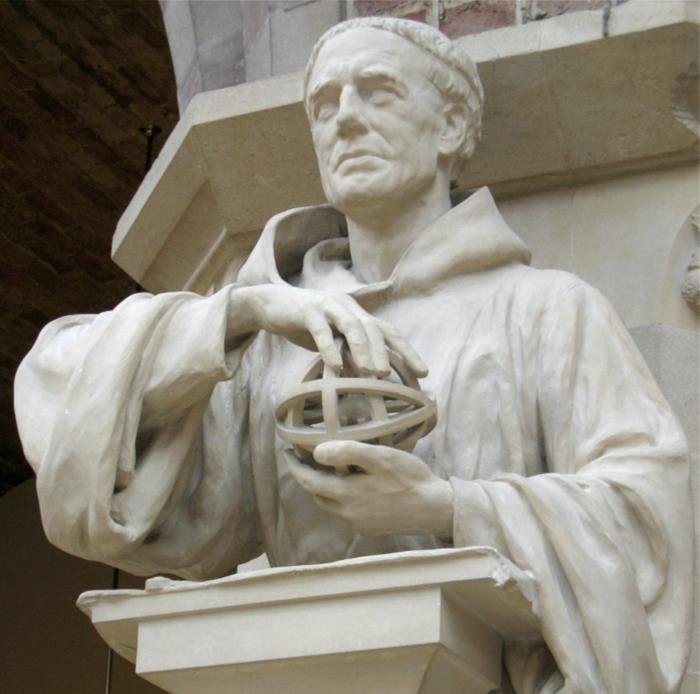 |
| Roger Bacon (source: Wikimedia). |
In the very last book he wrote, Bacon included an introductory chapter on "the general causes of human errors" (ch. 2, section 6). This chapter includes, in rapid succession, two quotes that seem to reject the power of authority more than anything else (in section 8):
With just how much discretion authority is to be examined Aristotle bears witness in the first book of Ethics when he says, "If two friends exists, Plato and truth, one should align oneself more with truth than the friendship of Plato." […] But few wish to examine the words of their teachers, which Boethius condemns in [his] book On the Training of Scholars saying: "A low-grade talent always uses the things discovered and never those to be discovered; and it is [even] more foolish to trust entirely the sayings of academic authority. […]"Here's the Latin:
Quanta vero discretione examinanda est auctoritas, Aristoteles primo Ethicae testatur dicens, "Duobus existentibus amicis, Platone et veritate, magis consentiendum est veritati quam amicitiae Platonis." […] Sed pauci volunt examinare dicta suorum magistrorum, quod reprobat Boethius libro De disciplina scholarium dicens, "Miserrimi ingenii est semper inventis uti, et nunquam inveniendis; stultiusque est magistratus orationibus confidere omnino. […]"
No comments :
Post a Comment